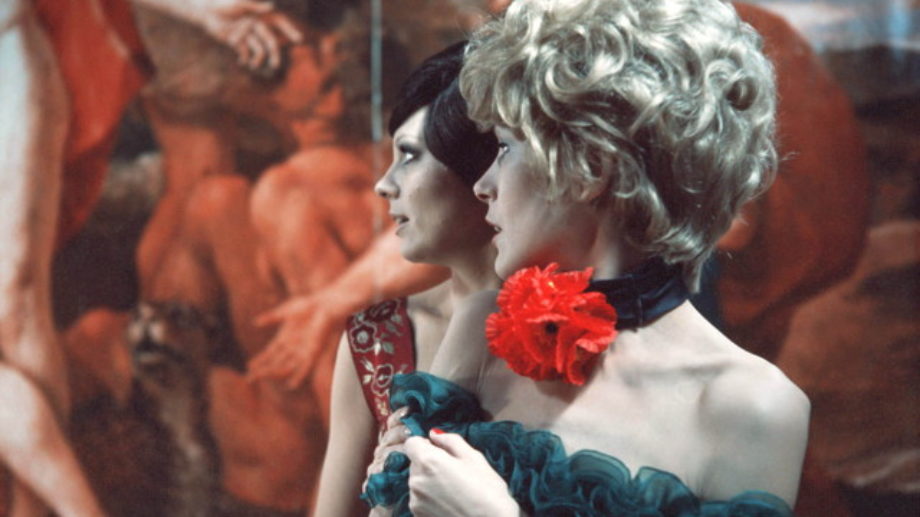As Pride kicks off for the month of June, Film at Lincoln Center is proud to celebrate and share the voices and work of our LGBTQ+ community. Through our growing Queer Filmmakers Portal and via social media, we will continue to expand our wider Amplified Voices initiative in the weeks ahead.
For this week’s Community Corner question, we asked what you consider to be an essential queer film. Rainer Werner Fassbinder (The Bitter Tears of Petra von Kant, Fox and His Friends, In a Year with 13 Moons, and Querelle) was the director with the most titles cited, while Céline Sciamma’s Portrait of a Lady on Fire was the film title that recurred most frequently. While we accepted answers across our social media channels, we also included a form where members of the FLC community provided longer, more personal answers. A collection of your responses are listed below!
See what’s playing and coming soon to our theaters and the FLC Virtual Cinema and join our online community on Instagram, Twitter, Facebook, or Letterboxd, and don’t miss a thing by subscribing to the weekly newsletter.
FLC Community Testimonials
“Francis Lee’s God‘s Own Country was an amazing experience for me. The thing I like the most was that one of the characters was Romanian (as am I). I just love everything about these two men and their journey from the beginning of the film to the end. The ending was also one of my favorite moments in cinema. It shows how to accept yourself, how you can grow, and how one single person can help you through [your struggles].” — Cristiana
“Karyn Kusama’s Jennifer’s Body is a lot of things for a lot of people… but to me it is, above all else, about the emotion and anger one goes through while being queer in small towns and Conservative households. Jennifer is a young girl that has to go through the horrors and dangers all women face in the world while trying to come to terms with her being queer and loving her best friend. She’s angry. She’s insecure. And she lashes out. Jennifer experiences a universal group of emotions that many queer people go through in the formative years of not only finding yourself but loving and accepting yourself as well.”— Patrick
“As a young gay guy, finding the films of Rainer Werner Fassbinder was a godsend. Prior to encountering his work, I’d been stumbling blindly around the annals of LGBT cinema, admiring what I saw but seldom ever connecting with any of it on a truly personal level. That all changed with Fassbinder, whose dizzyingly rich melodramatic universe—at once campy, thrilling, scary, and tragic—shook me to the core, as it has done and will continue to do for many other queer people before and after me.
It’s his unjustly maligned final film, the Jean Genet adaptation Querelle, that I hold the closest to my heart. In the mesmerizingly stylized dreamscape of Brest, possibly one of the greatest single feats of production design and lighting in cinema, the filmmaker guides us through a hazy, Dante-esque tour of erotic hell, showing us a million distorted reflections of masculinity in all its violence, doubt, vulnerability, and beauty.
As one of the only films to ever really explore the implications of homosexual desire itself (beyond an identity category or a political descriptor), it deserves an especially prized place in the canon of gay cinema. And on an individual level, it made me feel understood in a way few other movies ever have. A dazzling final triumph from my favorite director to ever work a camera.” — Brian
“Sigrid Andrea P. Bernardo’s Anita’s Last Cha-Cha is a little-known Filipino coming-of-age film about a young girl who finds herself having a crush on an older woman. It sounds terrible when described like that (and it’s not exactly what you think it) is but it’s a tender, heartfelt film about the formation and development of a lesbian identity in a young girl who finds herself confused yet enamored by such a simple crush/infatuation. I consider it essential because it reflects the feeling of finding yourself in that situation, developing and recognizing your feelings and realizing that you’re growing up and are no longer the child you used to be.”— Anonymous
“The campfire scene in Gus Van Sant’s My Own Private Idaho made such an impression me. I found it incredibly moving, especially as someone who was figuring out my queerness when I first viewed it. It really speaks to how queer unrequited love/alienation, in general, can feel. And just the fact that the scene was improvised amazes me! One of my favorite not only queer cinema moments, but cinema at large moments ever.”— Anonymous
“Holding the Man is based on a memoir by actor and activist Tim Conigrave (he passed away shortly before its publication). The film is Australia’s most important queer cinematic landmark and is so moving. It changed my life.”— Sean
– THE WATERMELON WOMAN (Cheryl Dunye, 1996)
– BUT I'M A CHEERLEADER (Jamie Babbit, 1999)
– PARIAH (Dee Rees, 2011)
– TOTALLY F**KED UP (Gregg Araki, 1993)— Film at Lincoln Center (@FilmLinc) June 4, 2021
DOÑA HERLINDA AND HER SON (Jaime Humberto Hermosillo, Mexico, 1985) pic.twitter.com/maotl311aG
— Cinema Tropical (@CinemaTropical) June 5, 2021
— Sunken Treasure (@treasure_sunken) June 4, 2021
Pride pic.twitter.com/JgK5ZqJ0ax
— David Low (@ydavey) June 5, 2021
#TheBirdcage is one my Favorite Films 🏳️🌈 #pride #Pride2021 #RobinWilliams #NathanLane pic.twitter.com/aBcxWoXblr
— NY Paralegal (@ny_paralegal) June 4, 2021
— eyetestfb (@wongkarwow) June 4, 2021
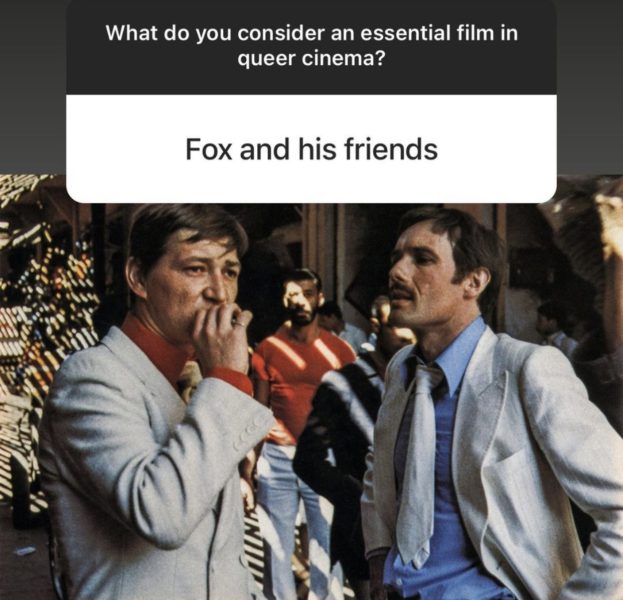
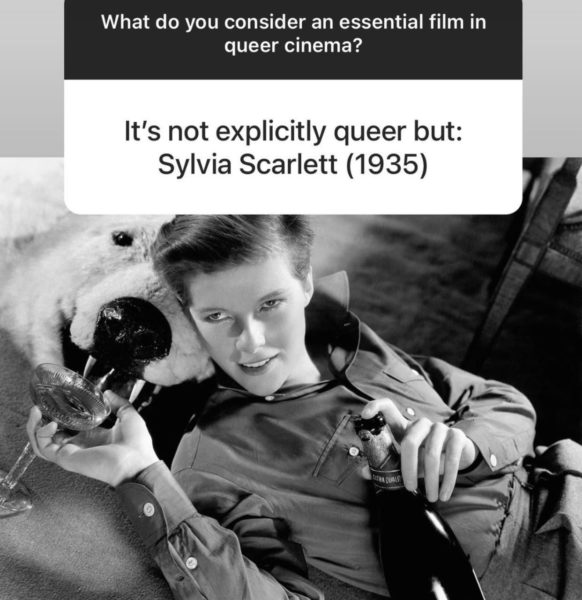
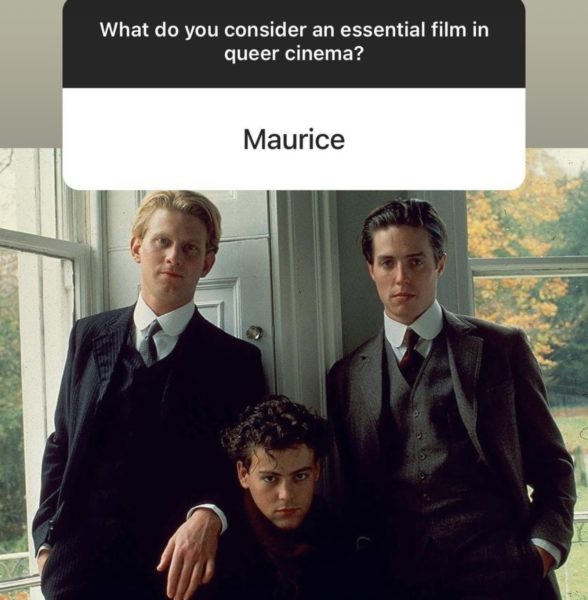
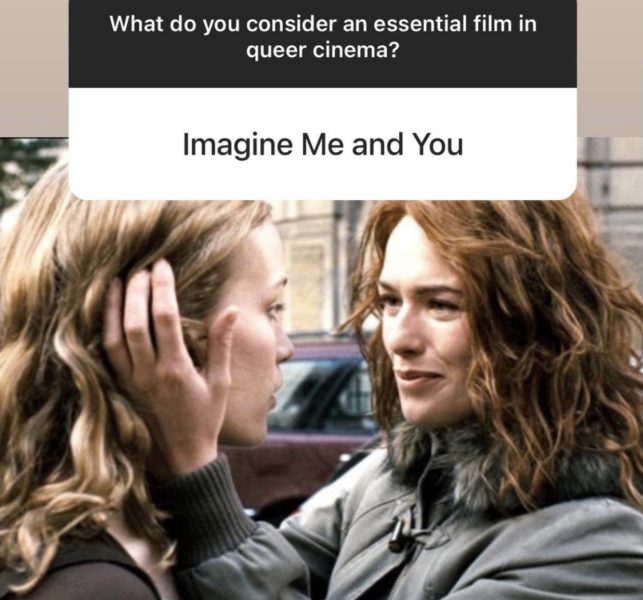
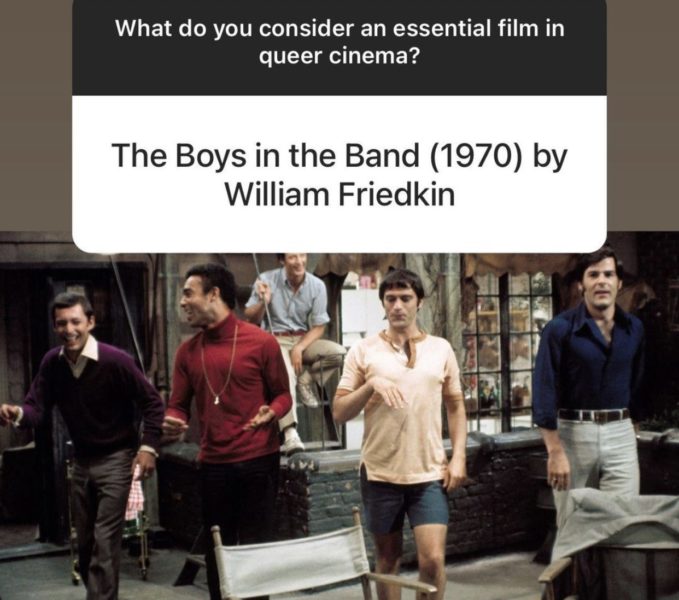
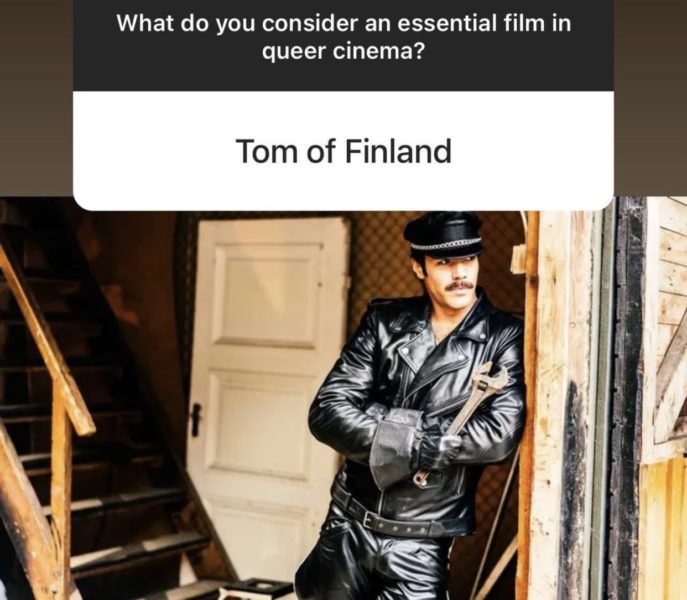
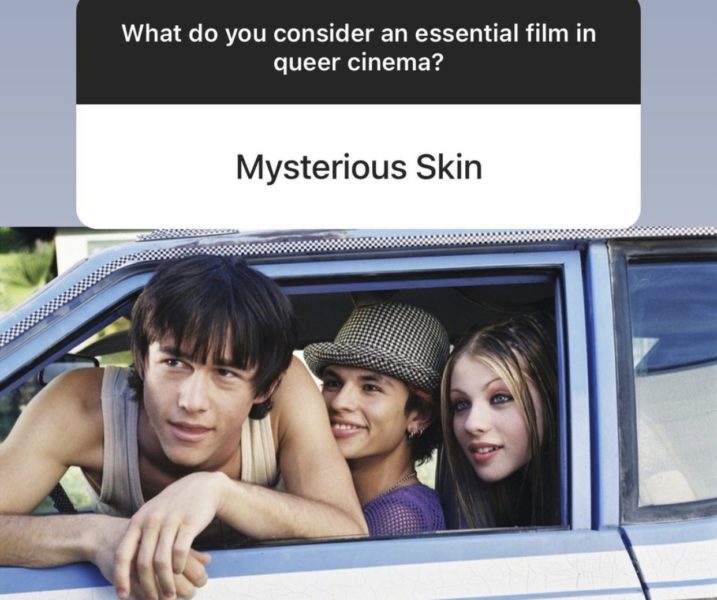
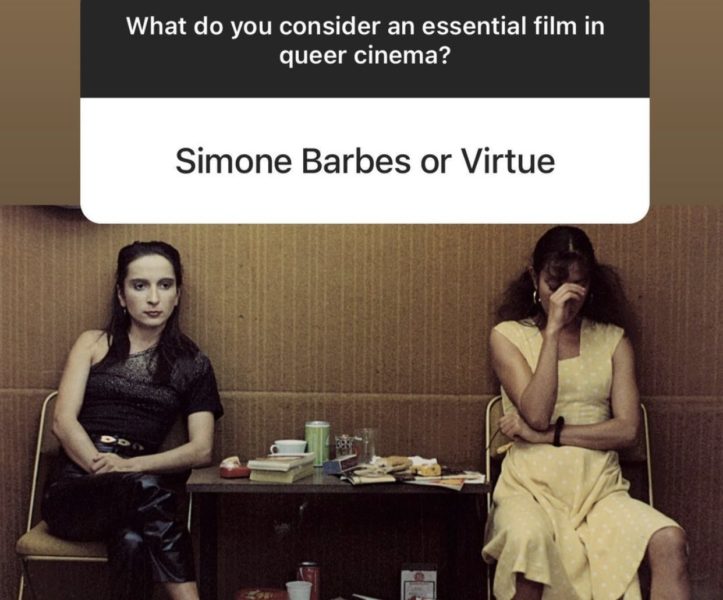
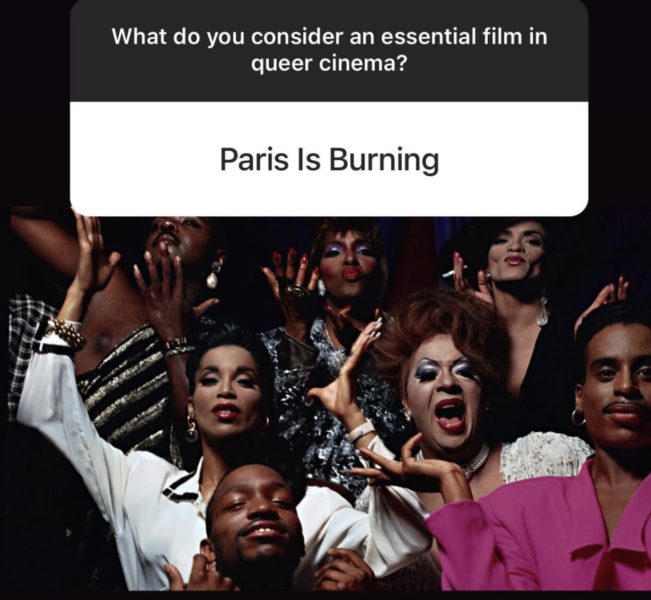
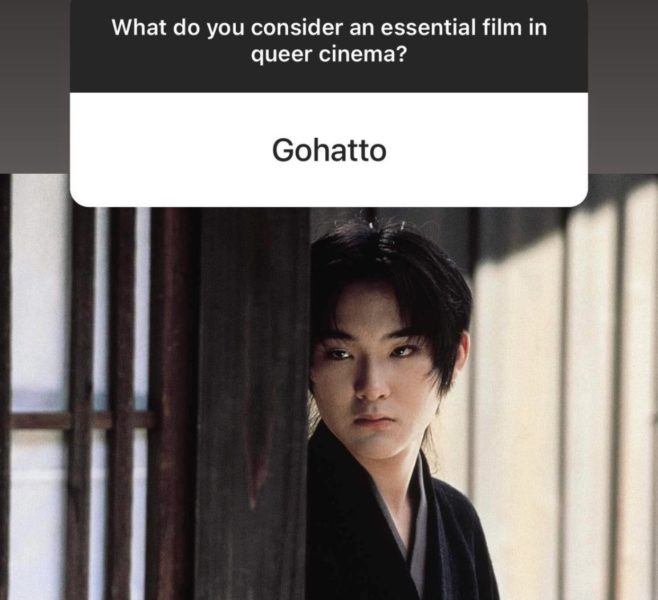
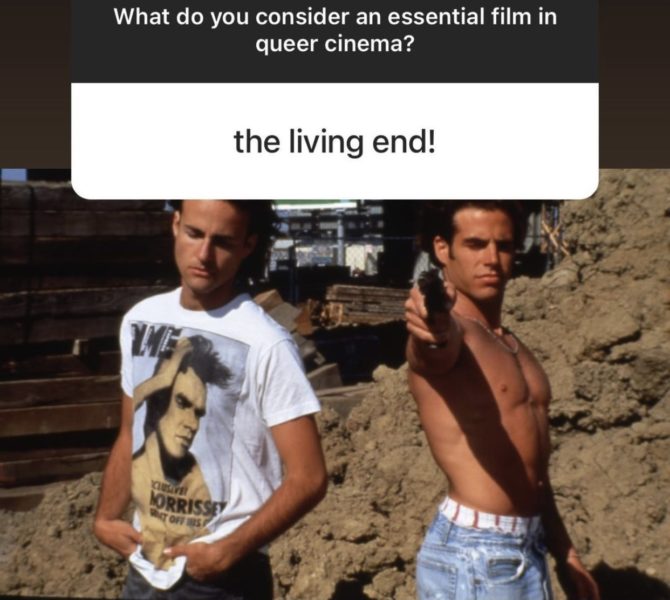
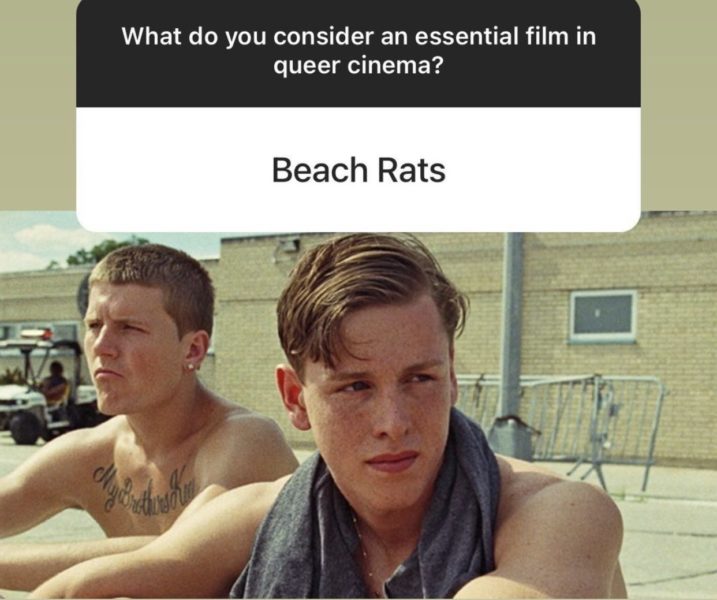
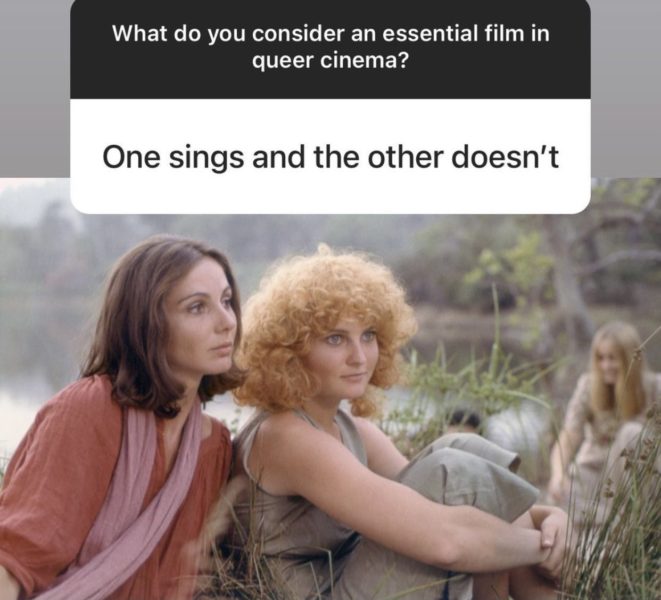
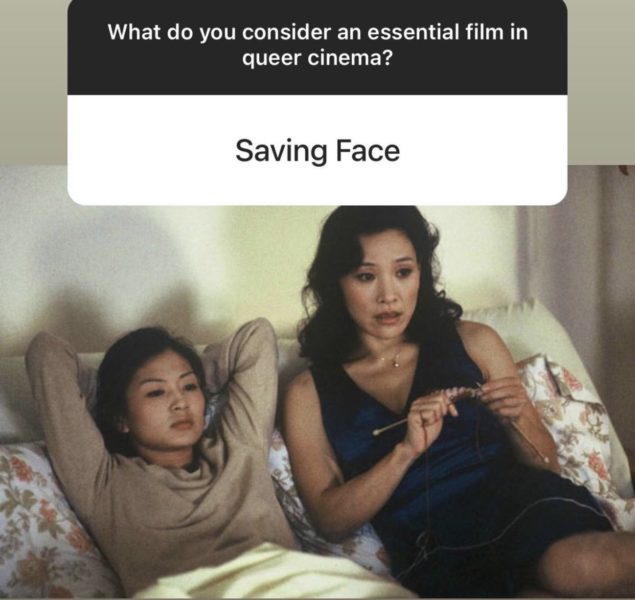
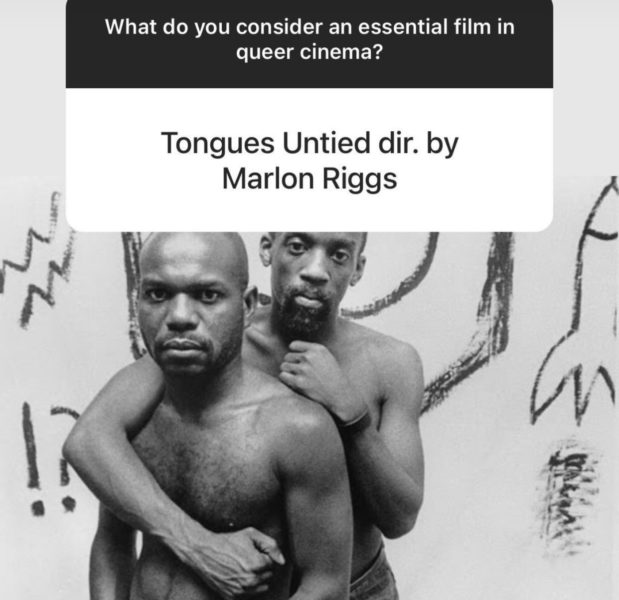
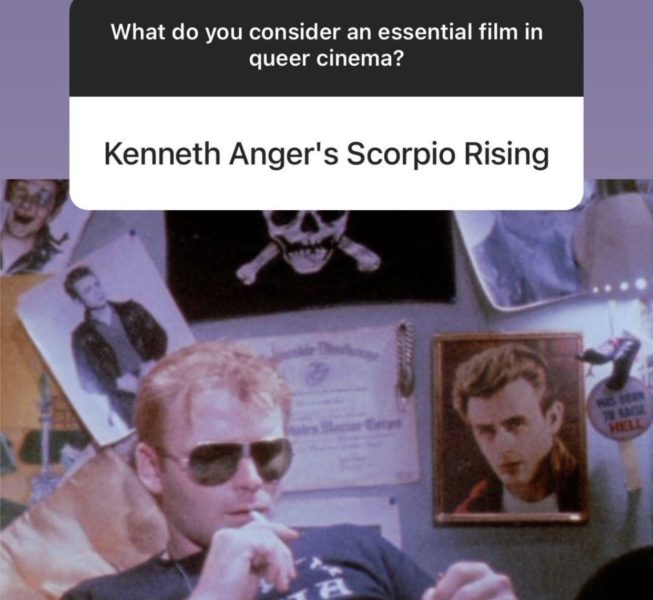
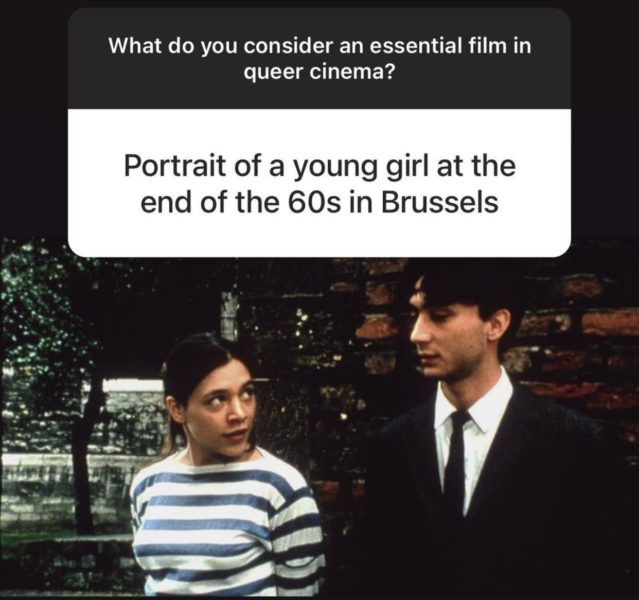
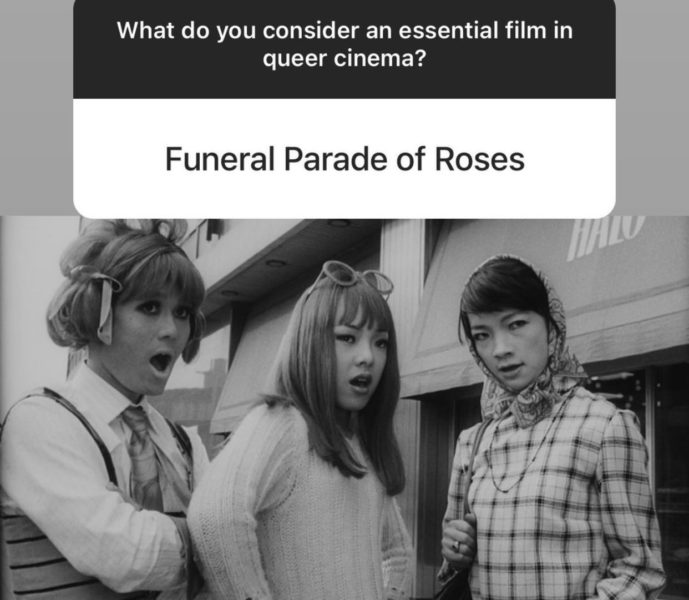
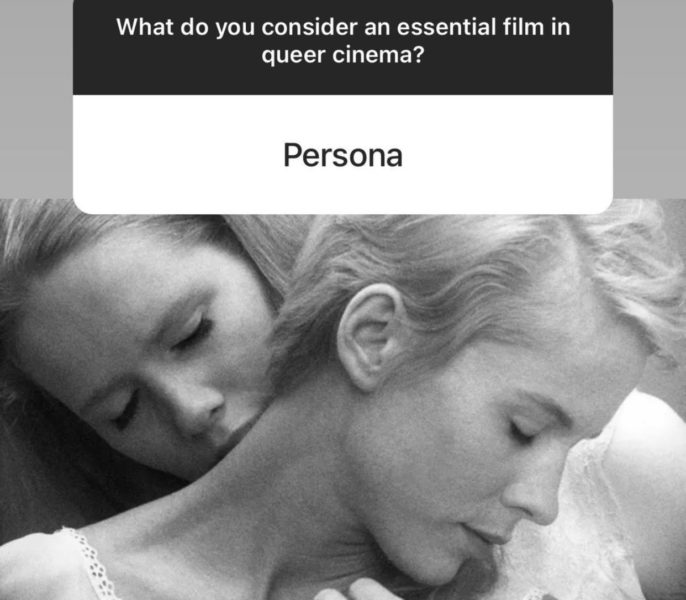
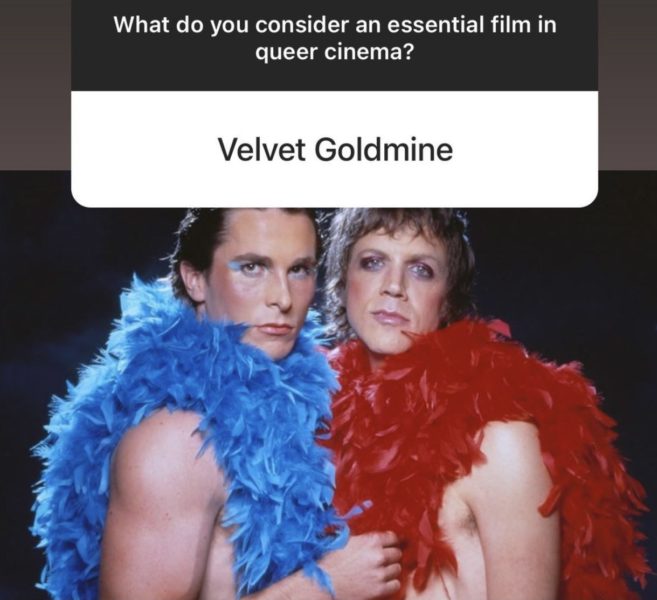
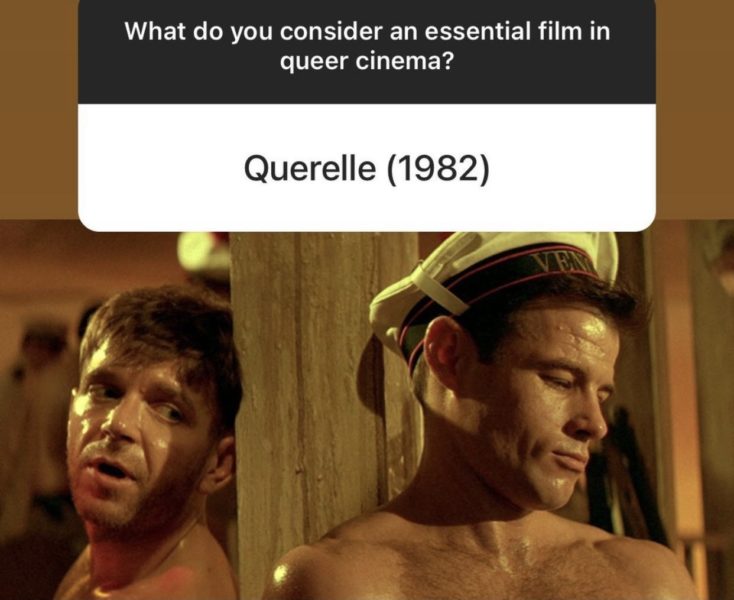
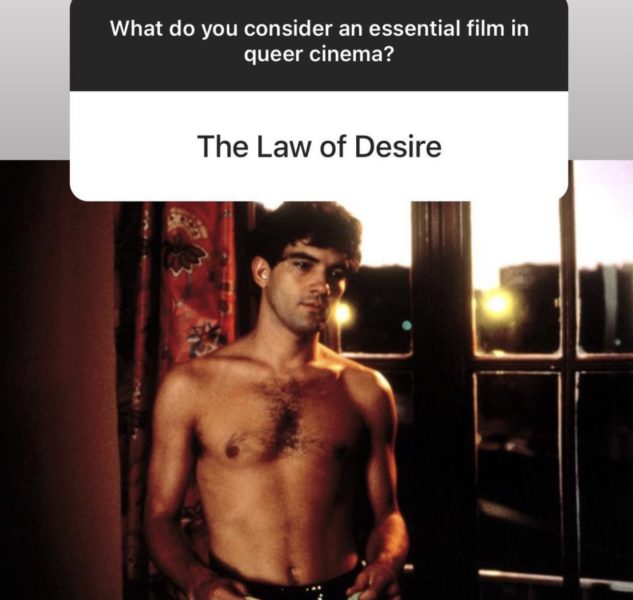
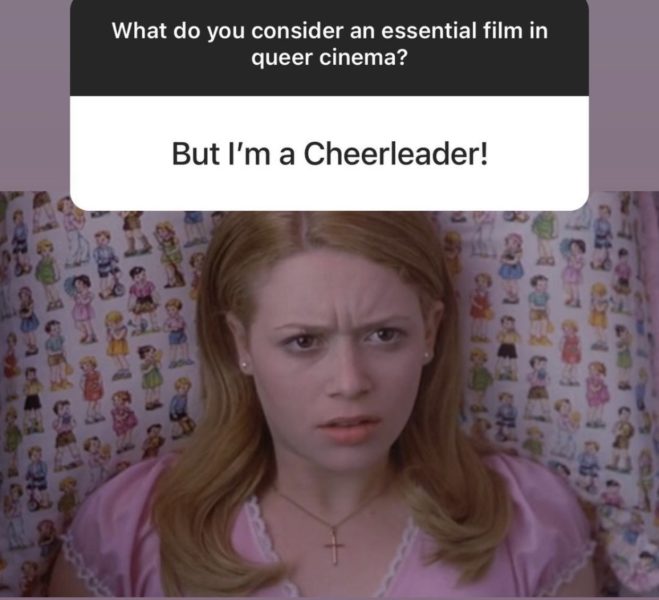
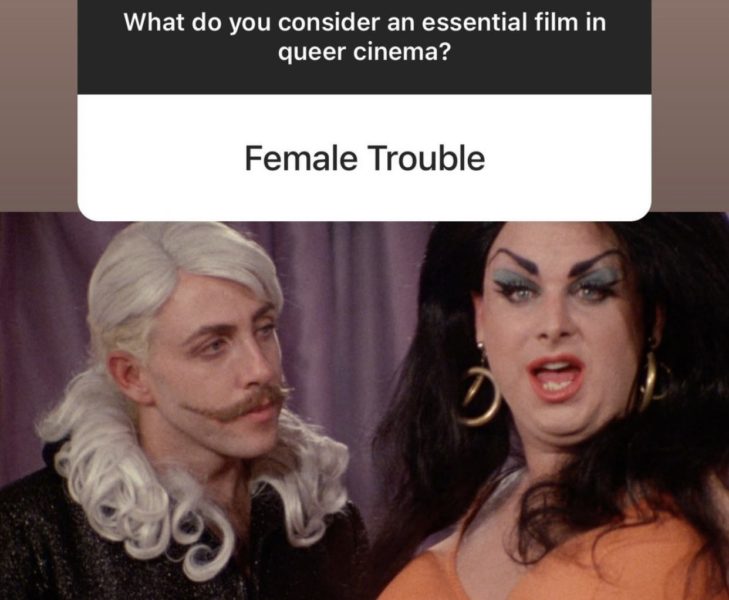
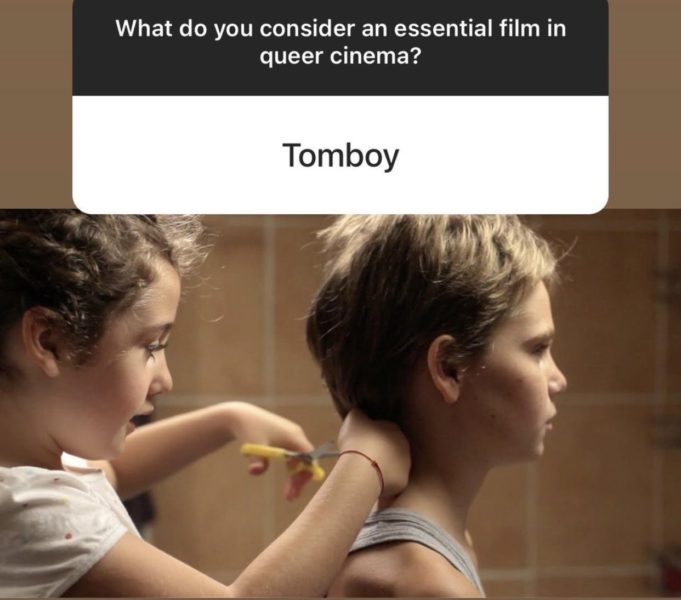
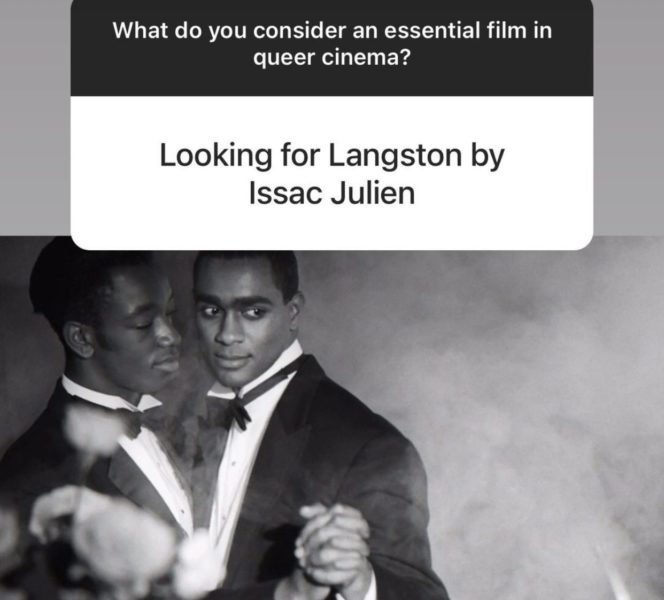
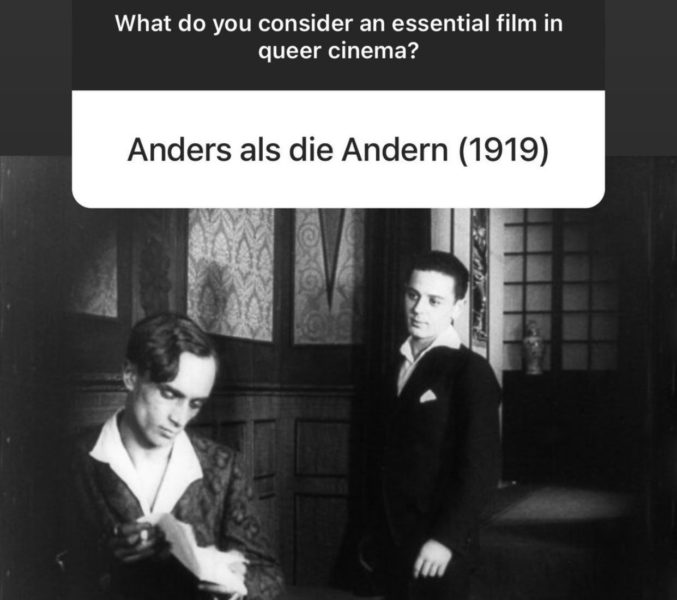
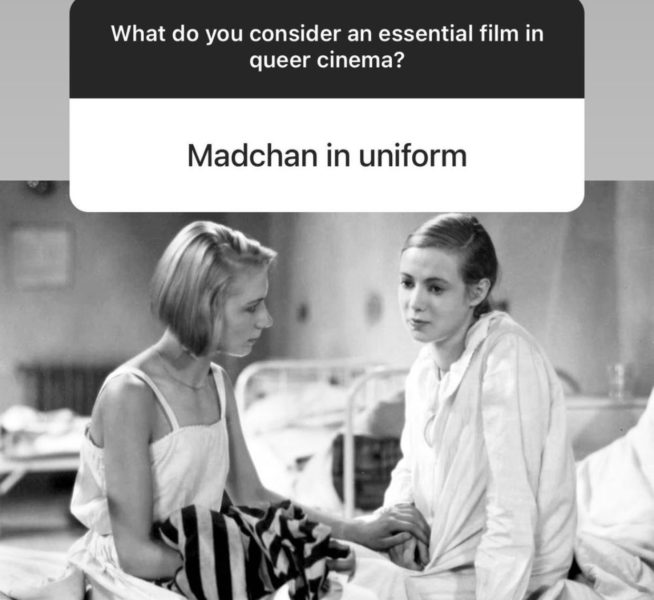
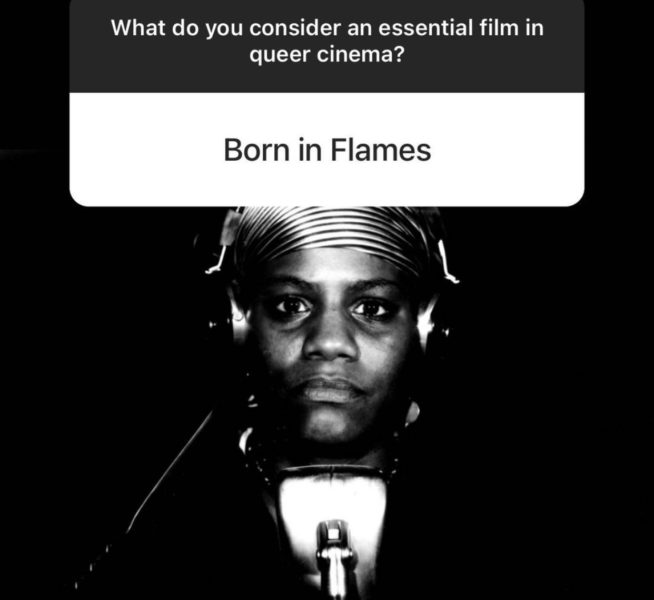
Do you have more suggestions to add to the list? Share with us on Twitter, Instagram, and Facebook, and stay tuned for more conversations on cinema.


